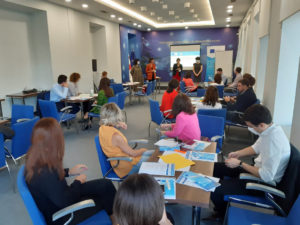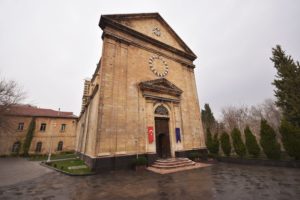
Technical Assistance for Implementation of Civil Society Dialogue and Civil Society Support Programmes (TR2015/DG/01/A5-01/001)
The overall aim of the project is to increase bilateral exchanges and cooperation between CSOs in Turkey and the EU at local, regional and national levels, to promote awareness raising initiatives on importance and benefits of membership of Turkey to the EU within Turkey and EU and on

Facility for the Implementation of the EU-Georgia Association Agreement- II
The project aims to strengthen the capacity of public institutions in Georgia to meet the country’s commitments under the EU-Georgia Association Agreement (AA), including the Deep and Comprehensive Free Trade Area.

Technical Assistance Support to the Women’s Breakthrough Project
Over the next century, half the world’s population growth is expected to take place in Africa. It is recognized that one of the continent’s most significant development challenges will be creating enough quality jobs and to employ this population growth. Gender equality, particularly the inclusion and empowerment of

Harmonisation of Kosovo Legislation in the Field of Working Conditions with EU Legislation
Improving the working conditions through the harmonization of legislation in the field of working conditions with EU legislation and increased awareness of relevant stakeholders is vital for employees. Thus, this contract aimed to increase institutional and technical capacity for effectively addressing labour policy issues in Kosovo while providing

Technical Assistance for EU-Turkey Anatolian Archaeology and Cultural Heritage Institute
The project is intended to improve intercultural dialogue between Turkey and the EU by protecting and promoting items of common cultural heritage and by strengthening civil society dialogue on such matters. It will improve access to the archaeological heritage and historical works of ancient Anatolian civilizations by identifying,

Technical Assistance for Promoting Social Inclusion in Densely Roma Populated Areas
It’s an obvious fact that there is a need to increase social inclusion in heavily populated areas, particularly in Rome, mainly by facilitating their entrance into the formal labour market. Within this context, the project aimed to support Rome’s population by improving the quality of education delivery, vocational

